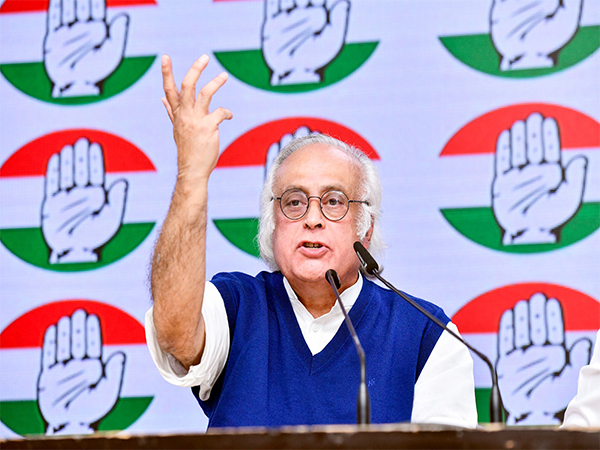Polish experts from Centre for Eastern Studies analyse Russia's 'unprovoked war', global implications
Jan 18, 2024

New Delhi [India], January 18 : Experts from the Centre for Eastern Studies in Poland provided insightful perspectives on Russia's unprovoked war and its broader implications, emphasising the unforeseen challenges faced by Russia in its campaign against Ukraine.
Wojciech Kononczuk, Director General of the Centre for Eastern Studies, highlighted the initial intent of Russia's quick campaign, aiming to swiftly take control of Ukraine and dismantle its army.
"The unprovoked war was planned by Russia's very quick campaign. So basically, Russia initially wanted to take over Ukraine and destroy the Ukrainian army in a couple of weeks. As we know, it didn't happen because of the resistance from the Ukrainian armed forces and Ukrainian society which was a big surprise to the Russians. Paradoxically, Russians and Ukrainians, they created common country for many centuries but it doesn't mean that Russia and Russians understand Ukraine and Ukrainians," he told ANI.
However, the resistance from the Ukrainian armed forces and society proved to be a significant obstacle.
"There is an impression in many European countries including Poland, especially NATO eastern flank countries starting from the Nordic countries Finland and Sweden through the baltic countries Latvia, Lithuania, Estonia, Poland, Slovakia, and Czech Republic to Romania that it is also our war," Kononczuk also said.
The Director General of the Centre for Eastern Studies also noted the historical ties between Russians and Ukrainians but emphasized the lack of understanding between the two nations.
"We know what is at stake in this conflict. It is not only the future of Ukraine as an independent country but it is also the future of international order in this part of the world," he added.
Marek Menkiszak, Head of the Russia Department, clarified that the conflict was not merely about territorial disputes. Instead, it revealed Russia's ambitious goal of fully subjugating Ukraine as a state.
"It is important to underline that this conflict is not about any piece of territory. This is not a territorial conflict," Menkiszak said.
Menkiszak underscored Russia's broader strategy to regain control over its perceived post-Soviet area, considering it a natural sphere of influence.
"This conflict is about an ambitious Russia's goal, which is to fully subjugate Ukraine as a state. Russian strategy is basically to restore the control of our so-called post-Soviet area, which Russia considers its natural sphere of influence," he added.
The initial plan involved a quick operation lasting about two weeks, aiming to seize Kyiv and install a new pro-Russian government in Ukraine.
"So the first element of the plan was to restore fully that control with a quick operation which was supposed to last about two weeks and which supposed to be finished with taking off Kyiv and changing the Ukrainian government into a new pro-Russian government," said Menkiszak.
Meanwhile, Jakub Jakobowski, Deputy Director General and Head of the China Department, expanded the analysis to a global context. He pointed out the emerging links between European security and Indo-Pacific security, emphasising a strategic synergy between Chinese goals in the Indo-Pacific and Russian goals in Europe.
"The importance of the war in Ukraine goes way beyond European security. What it shows is that we can see emerging links between European security and Indo-Pacific security. I think the key to understanding this link is to look at a very powerful strategic synergy between Chinese goals in the Indo-Pacific and Russian goals in Europe," he said.
Jakobowski suggested that Russia's ambitions, extending beyond Ukraine, align with China's objectives, with both countries seeking to reshape global security dynamics.
He also highlighted the interconnectedness of global security dynamics. He suggested that Russia's goals in Europe and China's ambitions in the Indo-Pacific were mutually supportive. "The importance of the war in Ukraine goes way beyond European security. What it shows is that we can see emerging links between European security and Indo-Pacific security. I think the key to understanding this link is to look at a very powerful strategic synergy between Chinese goals in the Indo-Pacific and Russian goals in Europe," he said.
Additionally, China aimed to divert U.S. resources away from the Indo-Pacific, a trend already evident in ongoing debates within the United States.
"China is also hoping to divert the US resources away from the Indo-Pacific. In fact, we're seeing this now as exemplified by the debate in the United States currently," he said.

















